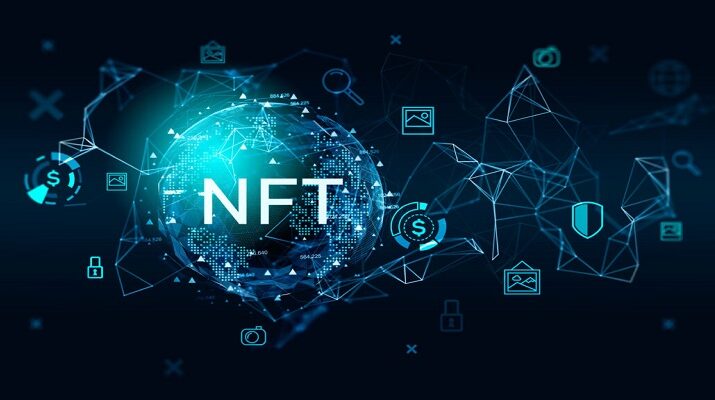In today’s gaming market, the development of NFT games is becoming increasingly significant. These games allow players to purchase virtual lands within the game and earn real money as a result. Gaming platforms have evolved, with gamers being able to gain cash from their gaming experiences.
NFTs’ current surge in popularity can be attributed in large part to markets like Opensea and Cryptopunks. The introduction of NFTs has resulted in significant growth in the gaming industry, transforming how gamers engage with their favorite games. Unlike in the past, when players just paid to play games, NFTs have given gamers new ways to own, trade, and sell in-game digital assets, allowing them to earn a substantial amount of money from their gaming experiences.
If you’ve been following the latest advances in the gaming and virtual reality industries, you’ve probably heard the term NFTs, which stands for non-fungible tokens. NFT development company are one-of-a-kind digital assets that use blockchain technology to authenticate ownership and validity.
In this article, we’ll look at the growing popularity of NFTs in the gaming industry and talk about their bright future.
Table of Contents
The Use of NFTs in the Gaming Industry
In recent years, the use of non-fungible tokens (NFTs) in the gaming industry has increased, revolutionizing how gamers experience and engage with their favorite games. NFTs are used in the gaming industry to represent in-game objects such as weapons, armor, and other equipment, as well as virtual real estate and other virtual assets.
One of the most important benefits of NFTs in gaming is that they allow players to truly own their in-game items. Traditionally, gamers would purchase objects in-game but did not fully own them. Players, on the other hand, have entire control of their in-game objects and can trade or sell them as they see appropriate when using NFTs. As a result, new marketplaces for in-game objects have emerged, allowing players to make real-world money from their gaming experiences.
NFTs can also be utilized in the gaming industry to develop virtual worlds and create immersive experiences for gamers. Players can use NFTs to acquire virtual real estate within these worlds, opening up new avenues for investment and revenue production. Additionally, NFTs can be used to represent rare and unique items within games, providing players with an extra layer of excitement and exclusivity.
The use of NFTs in the gaming sector has provided players with a new sense of ownership and worth. Players can completely interact with their favorite games and experiences now that they can genuinely own in-game things and generate new revenue streams.
How NFT Works in Game Assets and Virtual Real Estate?
Non-fungible Tokens (NFTs) refer to unique digital assets that cannot be exchanged for similar assets or assets of the same value. In the context of gaming, NFTs are used to represent virtual game assets and virtual real estate.
When a game developer creates a virtual game asset or virtual real estate, they can create an NFT to represent that asset. This NFT contains information about the asset, such as its unique identifier, ownership rights, and other relevant information.
The NFT is then registered on a blockchain network, such as Ethereum, using a smart contract. This smart contract acts as a self-executing program that automatically executes the terms of the contract when certain conditions are met.
When a player purchases an NFT representing a game asset or virtual real estate, they are buying the ownership rights to that asset. This means that they can use, trade, or sell the asset as they see fit. The ownership rights are verified through the blockchain network, ensuring that the ownership cannot be disputed or forged.
The value of an NFT representing a game asset or virtual real estate is determined by the market demand for that asset. Just like physical assets, the value of a virtual asset is based on its rarity, uniqueness, and desirability. NFTs allow players to monetize their virtual assets, creating a new market for digital goods and services.
One of the main advantages of using NFTs for game assets and virtual real estate is that they provide a way to establish and verify ownership rights. This can help prevent fraud and theft, as well as make it easier for players to buy, sell, and trade virtual assets.
Additionally, NFTs can also be used to create in-game economies, where players can earn, buy, and sell virtual assets using cryptocurrency. This can help create a more immersive gaming experience, as well as provide a new revenue stream for game developers.
NFTs provide a way to represent and verify ownership rights for virtual game assets and virtual real estate. They create a new market for digital goods and services and can help create in-game economies that provide new revenue streams for game developers.
NFTs in Gaming and Real Estate: Future and Beyond
The incorporation of NFTs into gaming has the potential to revolutionize digital content monetization and engagement, providing scalability and sustainability concerns are adequately addressed. To properly capitalize on the opportunities afforded by NFTs, the gaming industry must remain adaptive to new technologies and strive to advance with them. This allows us to realize the full potential of NFTs in gaming and their power to transform how we interact with digital assets.
Although NFTs have enormous potential in gaming and VR, widespread adoption is hampered by challenges and limitations. The environmental impact of NFTs is a significant barrier, as their creation and verification demand a significant amount of energy. Furthermore, accessibility is a limitation because not everyone has the necessary technical expertise or resources to participate in these marketplaces or virtual realities. Nonetheless, these challenges and limitations must be addressed to facilitate wider adoption and fully realize the potential of NFTs in the gaming and VR industries.
The development of decentralized gaming systems that let users earn, purchase, and sell virtual assets using Bitcoin is one potential future use case for NFTs in gaming. This would enable users to monetize their gaming experiences and create a more immersive atmosphere, while also giving game producers a new money stream.
The construction of virtual real estate marketplaces is another possible use case for NFTs in real estate. Individuals would be able to buy and sell virtual plots of land, buildings, and other real estate assets through these marketplaces. This would allow consumers to invest in real estate without requiring physical assets, making it more accessible to a broader audience. NFTs can also be used to validate the ownership of these virtual assets and assure the security of transactions.
Conclusion
NFTs are changing the gaming and real estate industries by enabling the representation and verification of virtual assets. The potential for NFTs in gaming and virtual real estate is enormous as blockchain technology evolves. NFTs open up a new universe of possibilities for players and investors alike, from developing decentralized gaming platforms to virtual real estate exchanges.
Despite challenges such as environmental impact and accessibility, NFTs in gaming and real estate have a bright future. As more NFT use cases arise, we should expect to see new business models and revenue sources emerge, further reshaping these industries.
There has never been a better time to begin investigating the potential of NFTs in gaming and real estate. Whether you’re a player, an investor, or a developer, NFTs open up a whole new world of possibilities. So don’t put it off any longer; join the revolution and learn about the future of NFTs in gaming and virtual real estate today!




